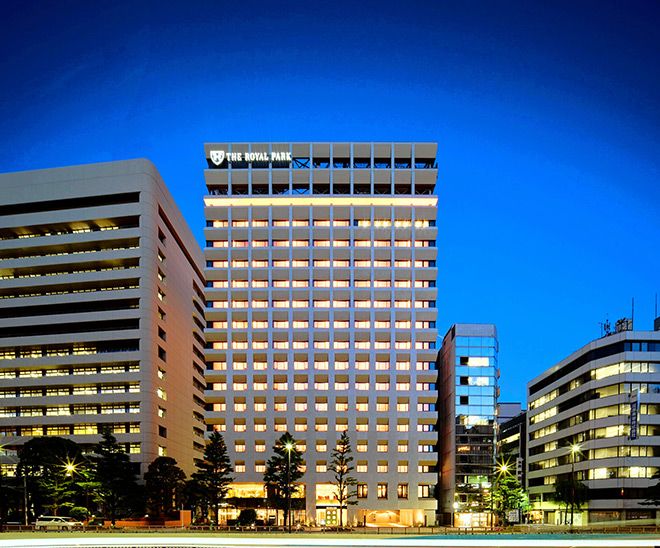Since last year, luxury hotels have been opening one after another in Tokyo’s Ginza district, drawing tourists to the upscale residential area.
The trend is likely driven by an influx of foreign tourists willing to pay higher accommodation prices for a luxury experience in upscale areas.
The Royal Park Hotel Ginza 6-Chome opened in late May in a prime location in Ginza.
This large-scale hotel will have 15 floors above ground and 1 floor below ground, with 273 guest rooms, and will be the Royal Park Hotels brand’s third facility in Ginza.
The hotel opened in a great location, just a 3-minute walk from Higashi-Ginza Station, facing Showa-dori Street, and close to Kabukiza and Tsukiji.
Room rates are relatively high, starting at 30,000 yen ($192) per room per night.
The hotel’s concept is “Ginza Pop,” and the history of Ginza, where antiquity and modernity coexist, is reflected in its colors and patterns.
In order to convey Japan’s hot spring culture, we have set up a large public bath exclusively for guests.
You can enjoy the charm of Japanese cuisine at Ginza Lamptei restaurant on the first floor.
During breakfast, you can choose your favorite filling from over 10 types of rice balls, and the chef will make them right in front of you.
Hotel snack bar
The highlight of the hotel is the purple-lit snack bar “Kobikicho Club” on the second floor. The bar has 19 seats, including counter and sofas, and is open to both hotel guests and visitors in the evenings.
Tsuyoshi Yamazaki, a senior executive at Aqua Planet, which operates the Kobikicho Club, had this to say about the concept behind the snack bar:
“Pubs are a British culture, just like bars in Spain,” says Yamazaki. “Snack bars are a bar culture unique to Japan. Both snack bars and hotels are places where people gather, so we wanted to incorporate a mechanism to attract people into the hotel.”
In snack bars, the barmaid serves customers behind the counter, but Kobikicho Club has male staff as well, reflecting the diversity of this era. You can enjoy not only alcohol but also karaoke.
“Snack bars are a uniquely Japanese drinking culture,” says a representative of the Kobikicho Club. “We want to spread that style of izakaya to the world.”
The mama of the Kobikicho Club is Masako Nishio (36 years old), a former model who took a break from her day job to take on this challenging role.
“It’s a snack bar inside the hotel, so you can drop in whenever you like. I hope everyone will feel free to drop by,” says Nishio.
Ultra-luxury accommodation
Over the past year, new hotels have begun to pop up one after another in Ginza.
“lyf Ginza Tokyo,” proposed by Singapore-based Ascott, made its debut in Ginza in November.
There are a total of 140 guest rooms. Room rates vary depending on the room, but the average price is around 20,000 yen per night.
The rooms can accommodate 1 to 3 guests for a minimum of 30 nights at a time.
Common areas include a kitchen, laundry room, gym and a “co-working lounge” that can be used for business or other purposes.
According to Ascott Japan, 80% of guests are from overseas, and many stay for three nights or more.
An Ascott spokesman said, “Due to the weak yen and rising prices, people are spending more days on each trip. We feel there is an increasing demand for facilities for living rather than just lodging.”
The Tokyo Edition Ginza, a Marriott hotel that opened in March this year, is characterized by its low room rates, starting from 120,000 yen, excluding tax and 15% service charge.
The standard room is one of the largest in the Ginza area, boasting a spacious 41 square meters.
“We believe many people respond favorably to our brand’s concept and design because we have offered unique, engaging and memorable experiences that resonate with our guests’ aspirations, interests and lifestyles,” a hotel representative said.
Mitsui Garden Hotel Ginza Tsukiji is scheduled to open in September of this year. Room rates start from 30,570 yen, including consumption tax and service charges, excluding accommodation tax.
All 183 guest rooms are equipped with a washer/dryer, refrigerator/freezer, and microwave, catering to the needs of overseas travelers planning long-term stays.
A representative from Mitsui Fudosan’s public relations department said, “There are many competing hotels in Ginza and Tsukiji, but we are confident that many customers will choose this hotel because of its great location and excellent facilities.”
Kunihiro Shimomuka, a senior researcher at the Urban Research Institute, points out that the sudden increase in hotels in Ginza is due to the recovery in the number of tourists visiting Japan and the popularity of the city.
“Luxury hotels aimed at inbound tourists will be built in Ginza. They will be able to adjust accommodation prices, such as raising them on weekends when demand is high, so it will be easier to make a profit there than with office buildings, apartment complexes, or commercial facilities,” says Shimomuka.
Shimomuka said more foreign tourists are spending money on accommodation.
“We will continue to see an increase in luxury accommodations, upscale hotels and other unique and distinctive establishments that are fun to stay at,” he said.

